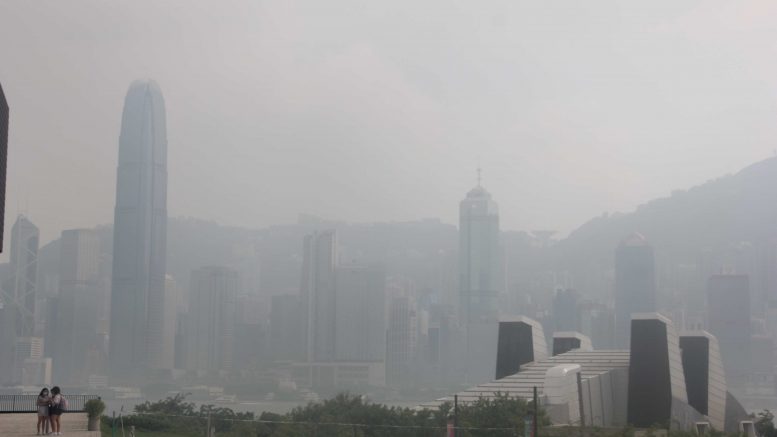By Chris Yeung —
With no exception, every annual policy address delivered by Hong Kong’s Chief Executive on his/her plan for the city’s future was full of hopes and promises. And with almost no exception, it has always ended up an embarrassing record when he or she delivered his or her next blueprint – if he or she has a chance to do so.
John Lee Ka-chiu, who displaced Carrie Lam last year, has promised to “Charting a Brighter Tomorrow for Hong Kong”, as his maiden policy address is entitled. He said: “Hong Kong has achieved a major transition from chaos to order, and is now at the crucial stage of advancing from stability to prosperity.”
In the next five years, he pledged he will lead his government team to “unite and motivate all sectors of the community, and give full play to our fine traditions of inclusiveness, unity and respect for different views… so that the Pearl of the Orient will shine brighter than ever.”
One year on, Lee will no doubt be full of hopes and promises, again, when he gives his next policy address at the Legislative Council on Wednesday (Oct 25).
This is despite growing jitters about the rapid erosion of the fundamental strengths, unfettered freedoms and unique charm of the city.
On the economic front, the slowed mainland Chinese economy has dragged the city’s economic recovery following the end of the Covid pandemic early this year. Almost all major economic indicators, including the number of visitors, were lackluster.
Daily turnover of stock trading has stayed at a low level. The property market has lost its vibrancy. Residential flat prices have dropped by five to ten per cent on average in the past year. Vacancy of commercial premises hit a high rate.
Weak local consumption has prompted the Government to roll out a “Night Vibes Hong Kong” campaign featuring night markets at several sites along the Victoria Harbour.
At a time when the Government was intensifying telling “good” Hong Kong stories, a Canadian think-tank Fraser Institute dropped Hong Kong from the Number One rank in its annual Economic Freedom of the World report for the first time in September. The top post went to Singapore, Hong Kong’s main rival.
Once a source of envy to governments elsewhere, the city’s fiscal reserves have fallen sharply in the past few years, now staying below the HK$700 billion mark. It was not long ago that it stood at the HK$1 trillion-mark.
Put together, the dismal economic performance and depleted fiscal strength made a mockery of Lee’s pledge of “advancing from stability to prosperity.”
On its face, Hong Kong is now “super-stable” compared with the city marred by fierce clashes between riot police and protesters for many months after June 2019.
Almost all applications for rallies and demonstrations had either been rejected or were withdrawn by the applicants after talks with the Police. The high risk of a breach of national security law and criminal ordinance has scared groups, including those in the pro-establishment camp, from taking to the streets.
Speaking in Hong Kong in April, China’s key official in charge of Hong Kong affairs Xia Baolong, urged people to take other means to express their views, saying “protest is not the only way.”
Xia’s not-so-gentle advice not in favour of staging rallies was well received by the pro-establishment force. Head of the leftwing Federation of Trade Unions Ng Chau-pei mimicked what Xia said days after he spoke.
Among others, the annual June 4 candle-light commemoration at Victoria Park before and after the handover had been seen as an indicator of the city’s freedom of expression under “one country, two systems.”
Following two years of closure of the football fields on grounds of the pandemic, scenes of June 4 candle-lights became history. The football fields were turned into a carnival featuring traditional foods of different mainland provinces.
Admittedly, few people took seriously Lee’s pledge of boosting “inclusiveness, unity and respect for different views” in last year’s policy address.
That events unfolded in the past year pointing to the contrary could not be more ironic and miserable. The society remains deeply divided, or even more so, since Lee took office.
For the first time, it looks certain no democrats will be able to get the ticket to join the grab for directly-elected seats in the December 10 district council elections. A “patriots-only” election will worsen divisiveness, sowing more seeds of socio-political unrest.
Adding more complexities to the city’s economic and fiscal health problems, the chronic social and political illnesses, if left unattended, are poised to further weaken its competitiveness and attractiveness not before too long.
This article was first published on Green Bean.


Be the first to comment on "One year on, Lee’s pledges turned sour"